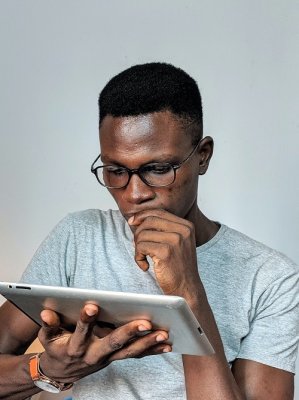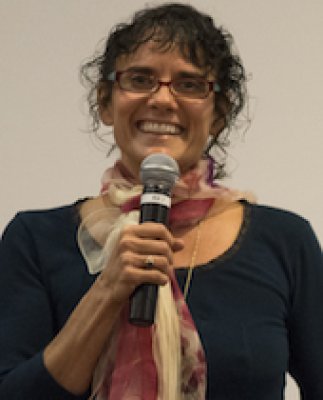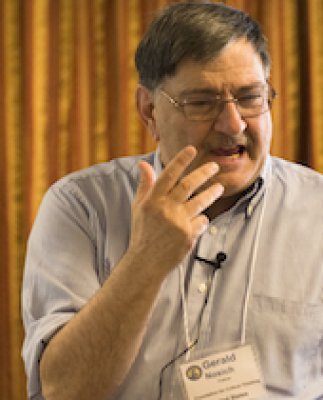Custom Programs of Post-Doctoral Study
in Critical Thinking
Embark on a One- or Two-Year Scholarly Program Under the Direct Guidance of a Foundation for Critical Thinking Scholar or Fellow
{"id":"5759","title":"","author":"","content":"<p style=\"text-align: center;\"><span style=\"font-family: georgia, palatino; color: #000000; font-size: xx-large;\">Custom Programs of Post-Doctoral Study </span></p>\r\n<p style=\"text-align: center;\"><span style=\"font-family: georgia, palatino; color: #000000; font-size: xx-large;\">in Critical Thinking</span></p>\r\n<p style=\"text-align: center;\"> </p>\r\n<p style=\"text-align: center;\"><span style=\"font-family: georgia, palatino; font-size: x-large; color: #000080;\">Embark on a One- or Two-Year Scholarly Program Under the Direct Guidance of a Foundation for Critical Thinking Scholar or Fellow</span></p>","public_access":"1","public_downloads":"0","sku":"","files":[],"images":[]}
Submit a proposal telling us exactly what aspect or application of critical thinking you would like to focus on, and our Fellows and Scholars will design and oversee a custom program for you.
Program Fee Covers These Benefits:
 1. A long-term scholarly plan drafted from your specifications.
1. A long-term scholarly plan drafted from your specifications.
2. Six two-hour remote meetings per year with a Foundation for Critical Thinking Scholar or Fellow.
3. Attendance at all of our online events and webinars.
4. Attendance at the Annual International Conference on Critical Thinking, whether in-person or online.
5. Participation in our semester-length online courses.
6. Participation in our Online Certification Courses.
7. Participation in our forthcoming Online Courses in Critical Thinking Therapy.
8. Membership in the Center for Critical Thinking Community Online for the duration of your program.
Program Expectations:
1. That you will participate actively in as many of our learning opportunitiies as you reasonably can.
2. That you will complete and submit a written project, to be outlined by you and approved by our Fellows, by the end of the program.
For pricing, details, and to submit a proposal, email us at cct@criticalthinking.org.
{"id":"5760","title":"","author":"","content":"<p><span style=\"font-size: large;\">Submit a proposal telling us exactly what aspect or application of critical thinking you would like to focus on, and our <span style=\"text-decoration: underline;\"><strong><a href=\"https://www.criticalthinking.org/pages/our-team-of-presenters/1108\" target=\"_blank\">Fellows and Scholars</a></strong></span> will design and oversee a custom program for you.</span></p>\r\n<p><strong><span style=\"font-size: large;\">Program Fee Covers These Benefits:</span></strong></p>\r\n<p style=\"padding-left: 30px;\"><span style=\"font-size: large;\"><strong><img style=\"float: right; margin-left: 20px; margin-top: 4px; margin-bottom: 15px;\" src=\"https://www.criticalthinking.org/data/courses/man_looking_at_ipad_pro_2698465_2.jpg\" alt=\"\" width=\"262\" height=\"350\" />1.</strong> A long-term scholarly plan drafted from your specifications.</span></p>\r\n<p style=\"padding-left: 30px;\"><span style=\"font-size: large;\"><strong>2.</strong> Six two-hour remote meetings per year with a Foundation for Critical Thinking Scholar or Fellow.</span></p>\r\n<p style=\"padding-left: 30px;\"><span style=\"font-size: large;\"><strong>3.</strong> Attendance at all of our online <span style=\"text-decoration: underline;\"><strong><a href=\"https://www.criticalthinking.org/pages/calendar-of-events-in-critical-thinking/639\" target=\"_blank\">events and webinars</a></strong></span>.</span></p>\r\n<p style=\"padding-left: 30px;\"><strong><span style=\"font-size: large;\">4. </span></strong><span style=\"font-size: large;\">Attendance at the <a href=\"https://www.criticalthinking.org/pages/45th-critical-thinking-conference-main/1679\" target=\"_blank\"><span style=\"text-decoration: underline;\"><strong>Annual International Conference on Critical Thinking</strong></span></a>, whether in-person or online.</span></p>\r\n<p style=\"padding-left: 30px;\"><span style=\"font-size: large;\"><strong>5.</strong> Participation in our <a href=\"https://www.criticalthinking.org/pages/online-courses-for-instructors/574/\" target=\"_blank\"><span style=\"text-decoration: underline;\"><strong>semester-length online courses</strong></span></a>.</span></p>\r\n<p style=\"padding-left: 30px;\"><span style=\"font-size: large;\"><strong>6. </strong>Participation in our <a href=\"https://www.criticalthinking.org/pages/online-certification-courses/1630\" target=\"_blank\"><span style=\"text-decoration: underline;\"><strong>Online Certification Courses</strong></span></a>.</span></p>\r\n<p style=\"padding-left: 30px;\"><span style=\"font-size: large;\"><strong>7.</strong> Participation in our forthcoming <strong>Online Courses</strong> </span><span style=\"font-size: large;\"><strong>in Critical Thinking Therapy</strong></span><span style=\"font-size: large;\">.</span></p>\r\n<p style=\"padding-left: 30px;\"><span style=\"font-size: large;\"><strong>8.</strong> Membership in the <a href=\"https://community.criticalthinking.org/\" target=\"_blank\"><span style=\"text-decoration: underline;\"><strong>Center for Critical Thinking Community Online</strong></span></a> for the duration of your program.</span></p>\r\n<p><span style=\"font-size: large;\"><strong>Program Expectations:</strong></span></p>\r\n<p style=\"padding-left: 30px;\"><span style=\"font-size: large;\"><strong>1. </strong>That you will </span><span style=\"font-size: large;\">participate </span><span style=\"font-size: large;\">actively in as many of our learning opportunitiies as you reasonably can.</span></p>\r\n<p style=\"padding-left: 30px;\"><span style=\"font-size: large;\"><strong>2.</strong> That you will complete and submit a written project, to be outlined by you and approved by our Fellows, by the end of the program.<strong></strong></span></p>\r\n<p style=\"padding-left: 30px; text-align: center;\"><span style=\"font-size: large;\"><strong><br /><span style=\"font-size: x-large;\">For pricing, details, and to submit a proposal, email us at </span></strong><span style=\"font-size: x-large;\"><a href=\"mailto: cct@criticalthinking.org\" target=\"_blank\"><span style=\"text-decoration: underline;\"><strong>cct@criticalthinking.org</strong></span></a>.</span></span></p>","public_access":"1","public_downloads":"0","sku":"","files":[],"images":[]}
Fellows of the Foundation for Critical Thinking

Dr. Linda Elder
Dr. Linda Elder is an educational psychologist and a prominent authority on critical thinking. She is President of the Foundation for Critical Thinking and Executive Director of the Center for Critical Thinking. Dr. Elder has taught psychology and critical thinking at the college level and has given presentations to more than 50,000 educators at all levels. She is author of Critical Thinking Therapy: For Happiness and Self-Actualization (2025), Liberating the Mind: Overcoming Sociocentric Thought and Egocentric Tendencies (2019), and has coauthored four books (including 30 Days to Better Thinking and Better Living through Critical Thinking, Fact Over Fake: A Critical Thinker’s Guide to Media Bias and Political Propaganda, and Critical Thinking: Tools for Taking Charge of Your Professional and Personal Life) as well as 24 Thinker's Guides.
Dr. Elder has also developed an original stage theory of critical thinking development. Concerned with understanding and illuminating the relationship between thinking and affect, as well as the barriers to critical thinking, Dr. Elder has placed these issues at the center of her thinking and her work.
With experience in both administration and the classroom, Dr. Elder understands firsthand the problems facing educators, administrators and business leaders. She is a dynamic presenter who reaches her audience on a person-to-person level.
 Dr. Gerald Nosich
Dr. Gerald Nosich
Dr. Gerald Nosich is a noted authority on critical thinking and has given more than 250 workshops to instructors and governmental agencies on all aspects of teaching it. He is the author of Reasons and Arguments (Wadsworth, 1982). His second book, Learning to Think Things Through: A Guide to Critical Thinking Across the Curriculum (Pearson, 4th ed., 2012), has been translated into Spanish, Chinese, Arabic and Turkish. His third book, Critical Writing: Using the Concepts and Processes of Critical Thinking to Write a Paper (2021), is available from Bloomsbury Publishing.
Dr. Nosich has given workshops for instructors at all levels of education in the United States, Canada, Thailand, Lithuania, Austria, Germany, Singapore and England. He has worked with the U.S. Department of Education on a project for a National Assessment of Higher Order Thinking Skills; given teleconferences sponsored by PBS and Starlink on teaching for critical thinking within subject-matter courses; served as a consultant for ACT in Critical Thinking and Language Arts assessment; and been featured as a Noted Scholar at the University of British Columbia. He is the author of numerous articles, audio- and videotapes on critical thinking. He has been Assistant Director at the Center for Critical Thinking at Sonoma State University, and is an associate of the Center and Foundation for Critical Thinking. Dr. Nosich is Professor Emeritus at the State University of New York Buffalo State and at the University of New Orleans.
{"id":"5762","title":"Fellows of the Foundation for Critical Thinking","author":"","content":"<p> </p>\r\n<p><img style=\"float: left; margin-right: 15px; margin-bottom: 210px;\" src=\"https://www.criticalthinking.org/data/courses/Linda_Elder.jpeg\" alt=\"\" width=\"165\" height=\"204\" /></p>\r\n<p><span style=\"font-size: large;\"><strong>Dr. Linda Elder</strong></span></p>\r\n<p><span style=\"font-size: medium;\">Dr. Linda Elder is an educational psychologist and a prominent authority on critical thinking. She is President of the Foundation for Critical Thinking and Executive Director of the Center for Critical Thinking. Dr. Elder has taught psychology and critical thinking at the college level and has given presentations to more than 50,000 educators at all levels. She is author of <em><span style=\"font-size: large;\">Critical Thinking Therapy: For Happiness and Self-Actualization</span></em> (2025), <em><span style=\"font-size: large;\">Liberating the Mind: Overcoming Sociocentric Thought and Egocentric Tendencies</span></em> (2019), and has coauthored four books (including <em><span style=\"font-size: large;\">30 Days to Better Thinking and Better Living through Critical Thinking</span></em>, <em><span style=\"font-size: large;\">Fact Over Fake: A Critical Thinker’s Guide to Media Bias and Political Propaganda</span></em>, and <em><span style=\"font-size: large;\">Critical Thinking: Tools for Taking Charge of Your Professional and Personal Life</span></em>) as well as 24 Thinker's Guides.</span><br /><br /><span style=\"font-size: medium;\">Dr. Elder has also developed an original stage theory of critical thinking development. Concerned with understanding and illuminating the relationship between thinking and affect, as well as the barriers to critical thinking, Dr. Elder has placed these issues at the center of her thinking and her work.</span><br /><br /><span style=\"font-size: medium;\">With experience in both administration and the classroom, Dr. Elder understands firsthand the problems facing educators, administrators and business leaders. She is a dynamic presenter who reaches her audience on a person-to-person level.</span></p>\r\n<p> </p>\r\n<p><img style=\"margin-right: 15px; margin-bottom: 205px; float: left;\" src=\"https://www.criticalthinking.org/data/courses/Gerald_Nosich.jpg\" alt=\"\" width=\"165\" height=\"204\" /><span style=\"font-size: large;\"><strong>Dr. Gerald Nosich</strong></span></p>\r\n<p><span style=\"font-size: medium;\">Dr. Gerald Nosich is a noted authority on critical thinking and has given more than 250 workshops to instructors and governmental agencies on all aspects of teaching it. He is the author of <em><span style=\"font-size: large;\">Reasons and Arguments</span></em> (Wadsworth, 1982). His second book, <em><span style=\"font-size: large;\">Learning to Think Things Through: A Guide to Critical Thinking Across the Curriculum</span></em> (Pearson, 4th ed., 2012), has been translated into Spanish, Chinese, Arabic and Turkish. His third book, <em><span style=\"font-size: large;\">Critical Writing: Using the Concepts and Processes of Critical Thinking to Write a Paper</span></em> </span><span style=\"font-size: medium;\">(2021)</span><span style=\"font-size: medium;\">, is available from Bloomsbury Publishing</span><span style=\"font-size: medium;\">.</span><br /><br /><span style=\"font-size: medium;\">Dr. Nosich has given workshops for instructors at all levels of education in the United States, Canada, Thailand, Lithuania, Austria, Germany, Singapore and England. He has worked with the U.S. Department of Education on a project for a National Assessment of Higher Order Thinking Skills; given teleconferences sponsored by PBS and Starlink on teaching for critical thinking within subject-matter courses; served as a consultant for ACT in Critical Thinking and Language Arts assessment; and been featured as a Noted Scholar at the University of British Columbia. He is the author of numerous articles, audio- and videotapes on critical thinking. He has been Assistant Director at the Center for Critical Thinking at Sonoma State University, and is an associate of the Center and Foundation for Critical Thinking. Dr. Nosich is Professor Emeritus at the State University of New York Buffalo State and at the University of New Orleans.</span></p>","public_access":"1","public_downloads":"0","sku":"","files":[],"images":[]}

 1. A long-term scholarly plan drafted from your specifications.
1. A long-term scholarly plan drafted from your specifications.
 Dr. Gerald Nosich
Dr. Gerald Nosich